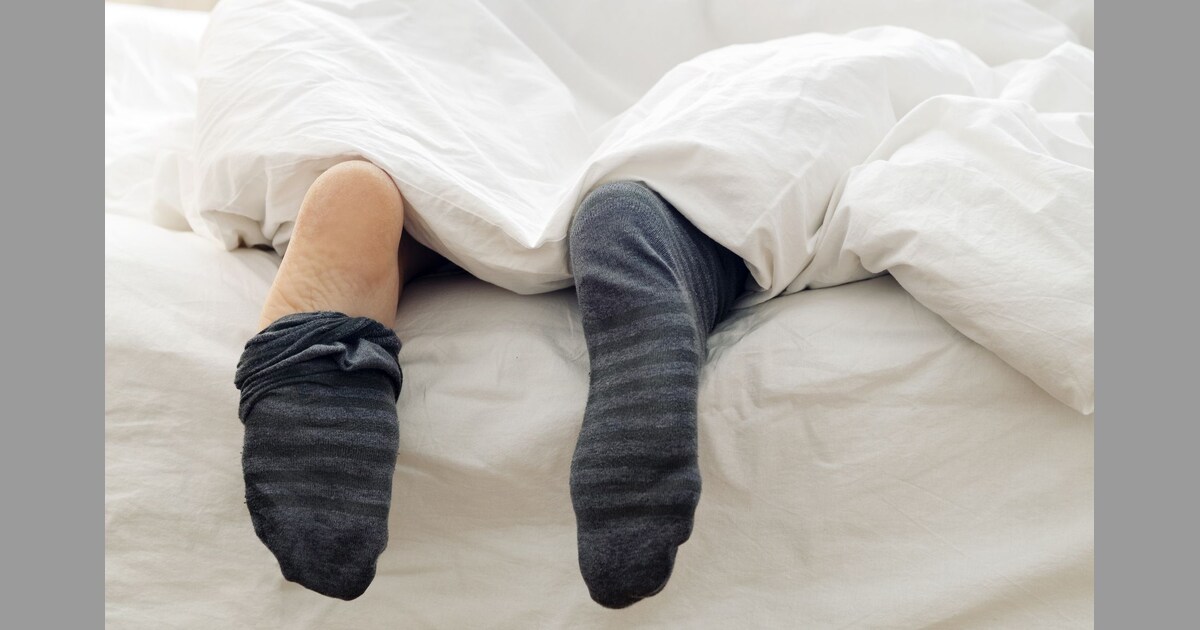Did you know that wearing dirty socks to bed might be worse than sleeping in a toilet? Find out why experts are sounding the alarm about this bedtime habit.
Bedtime Hygiene Alert: How Wearing Dirty Socks To Bed Could Impact Your Health
Experts have issued a stark warning regarding the habit of wearing dirty socks to bed, emphasizing the potential health risks involved. A recent survey conducted by Mattress Next Day, involving 1,017 individuals in the United Kingdom, revealed that a concerning 18% of respondents admitted to wearing socks while sleeping.
Of even greater concern, a staggering 70% of these sock-wearers confessed to not changing into a clean pair before bedtime, opting instead to sleep in socks that had been worn throughout the day.
Researchers from Mattress Next Day decided to investigate further, swabbing these well-worn socks between the hours of 7 a.m. and 11 p.m.
Their findings were disturbing, as nearly half of the sampled socks were found to harbor pseudomonas aeruginosa, a bacterium known to cause infections in humans.
This bacterium is particularly worrisome as it tends to infect the respiratory and urinary tracts, and can also lead to lung infections. Additionally, it is notorious for its ease of transmission, potentially spreading through contaminated surfaces.
Surprisingly, some of the tested socks were found to be even dirtier than uncleaned television remotes, which have previously been labeled “dirtier than a toilet.”
The National Institutes of Health has noted that pseudomonas aeruginosa is commonly found in cockroaches and their fecal matter. This revelation underscores the gravity of the issue, as individuals wearing these contaminated socks to bed could unknowingly transfer the bacteria to their bedding, significantly elevating the risk of infection.
Furthermore, human feet possess approximately 250,000 sweat glands, making them prone to moisture accumulation when encased in dirty socks. This moisture can provide an ideal environment for the growth of fungi called dermatophytes, responsible for conditions such as Athlete’s Foot.
In light of these alarming findings, the researchers from Mattress Next Day have issued clear recommendations for those who prefer to cover their feet at night. They advise individuals to don a fresh pair of socks before sleeping, thereby minimizing the risk of bacterial contamination.
Moreover, they strongly advocate washing dirty socks at temperatures exceeding 140 degrees Fahrenheit, as this will effectively eliminate the bacteria.
This revelation regarding the potential health hazards associated with sleeping in dirty socks echoes a broader trend of experts providing guidance on what items should and should not be worn to bed.
In a related development from 2021, a medical professional in Detroit cautioned against sleeping naked due to the potential for bedsheets to become contaminated with fecal material resulting from nighttime flatulence.
In summary, experts are sounding the alarm about the dangers of wearing unwashed socks to bed, citing the presence of harmful bacteria and the risk of infection.
Their advice is clear: opt for clean socks before sleeping and ensure proper hygiene through thorough sock washing to safeguard against potential health hazards.








Leave a Reply
You must be logged in to post a comment.